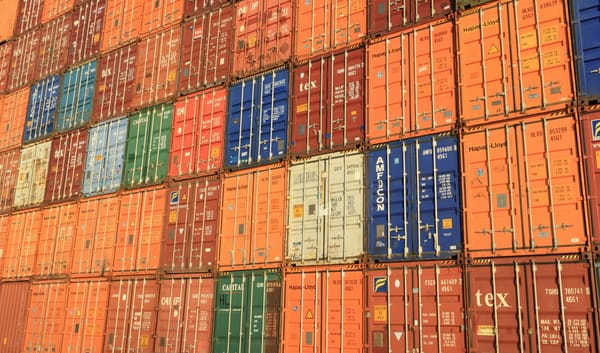A few years ago, I was on a call with a client—a VP of Sales for a U.S. industrial equipment manufacturer—who had just come back from a trip to Mexico. He sounded exhausted.
"We just lost a deal to a German competitor," he told me. "Same specs, same pricing. But the distributor straight-up said, ‘We prefer not to buy American right now.’”
What do you say to that? Sorry our country’s trade policy just cost you a seven-figure deal—better luck next quarter?
And now, with the March 4, 2025, rollout of 25% U.S. tariffs on Canada and Mexico, plus China’s latest round of import duties, that conversation is about to become a lot more common.
Markets tanked overnight, and retaliation is hitting fast:
- Canada slapped 25% tariffs on $30B of U.S. goods and plans to escalate to $125B in 21 days.
- China hit U.S. agricultural exports hard—15% on wheat, corn, and chicken, plus 10% on soybeans, pork, and dairy.
- Mexico is waiting until Sunday to announce countermeasures, but it’s unlikely to be gentle.
- The S&P 500 dropped 1.8% Monday, then another 0.7% at open Tuesday, dragging automakers, retailers, and tech stocks down with it.
For U.S. companies selling into these markets—not just sourcing from them—this isn’t just a pricing problem.
Trade Wars Are a Game of Chicken
Tariffs aren’t just about economics. They’re about power. The Trump administration’s latest move—justified under “national security” and immigration concerns—signals an escalation in coercive diplomacy. The message? Play by our rules, or we’ll make it hurt.
Other countries know how to play this game, too. In addition to slapping their own tariffs, Mexico is reviving its “Made in Mexico” campaign to push consumers away from U.S. brands while China is inflicting pain on specific major U.S. companies, blacklisting them from the Chinese market.
So what’s the real impact? Let’s get specific.
- Ford and GM are looking at 25% cost hikes on vehicles exported to Canada. You think a customer in Toronto is going to eat that price increase? Or are they just going to buy a Volkswagen instead?
- Midwestern soybean farmers are in deep trouble. Beijing’s already shifting to Brazilian suppliers. Meanwhile, John Deere—whose equipment relies on steel imports—is getting squeezed from both ends.
- Tech firms could get caught in the EU’s regulatory crossfire. Brussels is eyeing new digital taxes and data localization rules, especially on U.S. cloud and AI services.
The bottom line? If your go-to-market strategy assumes steady trade conditions—you’re already behind.
The Anti-American Backlash Will Be Real (And It’s Not Just About Money)
Trade disputes don’t just hit balance sheets; they hit consumer and business sentiment.
- 74% of Canadians disapprove of Trump, and 25% of our famously nice neighbors now call the U.S. an “enemy.” Not exactly the kind of sentiment that makes buyers eager to import American-made goods.
- Mexico’s government is already nudging companies to "de-Americanize" supply chains.
- China is strategically targeting U.S. firms. The biotech firm Illumina just got banned from selling in China, and more companies could be next.
Even B2B suppliers are under pressure.
One of our research analysts in Mexico recently conducted a win-loss interview for a U.S. client. "We’ve been with them for a decade," the Mexican buyer told our analyst "But we’re going to sign with a Korean supplier. My hands are tied."
So how do you fight back?
Four Moves to Protect Your Market Share
1. Localization—For Real This Time
Slapping a local-sounding slogan on your website isn’t enough. The companies that survived previous trade tensions—Apple in China, Ford in Mexico—did so by embedding themselves in the local ecosystem.
- Downplay U.S. ownership in marketing. No need to slap a giant American flag on the packaging. Ford’s Built in Mexico campaigns reduced brand association with U.S. policies the last time around.
- Invest in local supply chains. Even 30% local procurement in retaliatory markets within a year could qualify you for domestic preference programs.
- Build local partnerships. Chamber of commerce ties, regional distributors—anything to soften the “American supplier” label.
2. Treat Diplomacy as a Business Function
Don’t assume Washington will bail you out.
- Industry lobbying worked during the USMCA renegotiations. If you sector is heavily targeted now’s the time to rally with trade groups for carve-outs.
- Regulatory warfare is real. If the EU, Canada, or Mexico starts throwing new compliance hurdles at U.S. firms, you’ll need local legal expertise to navigate the mess.
- Mexico is waiting until Sunday to retaliate. If your company has lobbying power, now is the window to get involved.
3. Rethink Pricing—Before the Market Does It for You
Customers don’t like price hikes. If you pass tariffs straight through, expect churn.
- Subsidize key markets. Absorb some tariff costs in Canada and Mexico while raising prices in less sensitive regions.
- Explore tariff arbitrage. Is it worth the supply chain headache to consider Costa Rica or other nearshore locations for final assembly?
4. Manage the Brand America Discount
Your product might be great, but if it comes with political baggage, you need to offset that.
- Hyper-local CSR can shift perception. A U.S. pharma company investing in local insulin production in Canada? That’s a headline people remember.
- Regional leadership matters. Promoting local executives into high-profile roles can counteract the “foreign dominance” narrative.
Trade Wars Are Like Marvel Movies—There’s Always a Sequel
The pot that is being stirred in Washington means trade tensions won’t stabilize anytime soon. Trump will keep using tariffs as a weapon.
- If Mexico retaliates aggressively on Sunday, that’s another wave of economic pain.
- If China escalates bans on U.S. firms, certain industries could find themselves locked out of one of their biggest markets.
- If Trump doubles down because of market volatility, this could spiral into something much worse.
So the real question isn’t How do we survive the next four months, or four years?—it’s How do we build a business that’s resilient no matter what?







